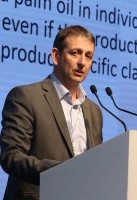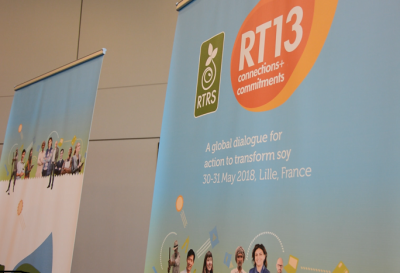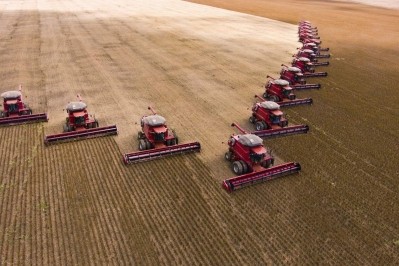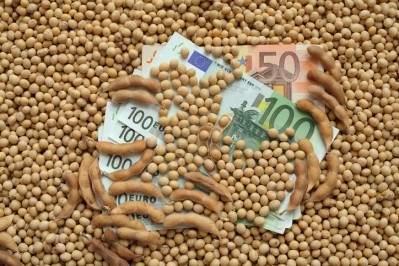60-second interview: challenges in verifying a non-GMO feed supply chain
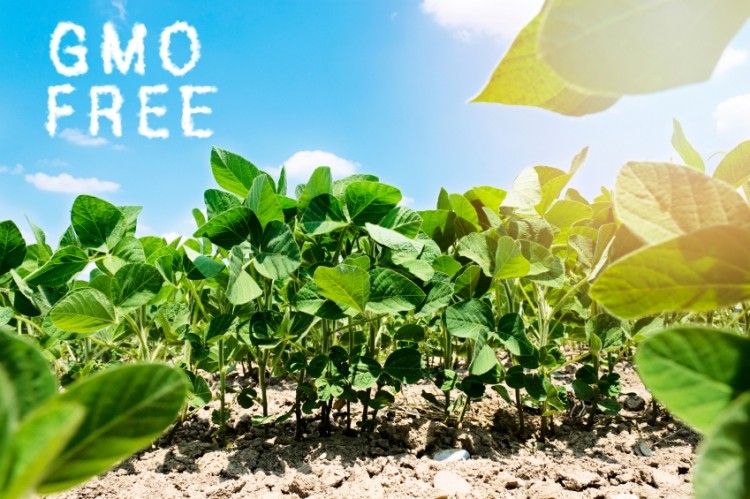
What is your background?
I have been in the certification industry for ten years and spent the last six working exclusively on sustainable supply chains in the food and feed industry.
Tell us about your current role.
Global ID Group is the leading certification, testing and verification organization for non-GM crops and products worldwide. My role is to lead the continued growth in this area in Europe as we assist more and more retailers to ensure they can obtain their commitments to GM free produce and help our clients meet those needs with the minimum additional work and cost. In addition, we are expanding our portfolio to be able to support our clients’ food safety and sustainability needs.
How strong is the non-GMO feed sector globally?
Given that the overwhelming majority of global soy is GM, we are seeing increasing interest from retailers, especially in continental Europe in being able to verify a non-GMO feed supply chain. In North America, the non-GM project has been extremely successful and requires non-GMO feed input. The demand for non-GMO feed [there] is increasing and will [continue to] do so. In the UK, we see more focus on climate change and deforestation than on purely non GMO-feed, and it could be argued that these two things are conflicting, how do we produce more soy on less land?
Tell us about projects you are working on right now?
Currently we are working on improvements to our non-GM verification platform to improve its functionality and reduce the costs of non-GM verification. Overarching this is my personal commitment to reduce the sheer number of audits being driven into the supply chain by various commitments and demands from retail, NGOs and consumers. Although we remain committed to delivering robust, high quality audits where appropriate, the application of technology will allow us to do more combined verifications, remote assessments and desk-based reviews, saving time and money for our clients. In the drive for sustainable raw materials, we need to ensure we do not make the thousands of business that support the food and feed industries unsustainable due to the increasing cost and burden of audits.
How has the global feed supply chain changed in recent years?
Increasing concern over the impacts on both animal welfare the environment and human health from CAFO’s often spearheaded by campaign groups has led to some public concern over how animals are reared and what they are fed upon. All of this is set against a backdrop of rapidly increasing human population, large increases in the middle classes, the most consumptive and wasteful class, and the ever-growing threat of climate change. Over a quarter of our GHG emissions come from the food and drink sector and the agricultural sector is the first to be impacted by changes in global weather.
This puts a massive amount of pressure on the industry to provide high protein feed while minimizing the environmental impacts and eliminating deforestation, which is strongly linked to the soy, palm and beef industries.
What is the biggest challenge for the feed industry today in terms of sustainability?
Without a doubt, the biggest challenge facing us all is climate change and the feed industry is no different. With major brand owners having committed to zero net deforestation within their supply chains, the main commodities driving this are under huge pressure to deal with this. Organizations such as the Roundtable on Sustainable Palm Oil (RSPO) have made some progress in their industry and ProTerra and the Roundtable on Responsible Soy (RTRS) are also working hard, but soy is still seen as a significant driver of deforestation despite the impacts of initiatives like the Brazilian Soy Moratorium.
On top of this, additional drivers, such as the Modern Slavery Act in the UK, put pressure on ensuring negative humanitarian impacts are avoided, meaning that the feed industry needs to be able to understand what impact its inputs are having on these important areas. However, [these concerns] needs to be balanced against the demands for more and cheaper animal proteins. Hence, my belief that we need to find alternative models to simply asking the feed industry to pay for multiple audits. We need to source and use responsibly produced raw materials, in a cost effective way and be able to demonstrate we have done so without making the business untenable - a challenge I am very much up for.
What can policymakers do to encourage more responsible feed raw material sourcing?
Firstly, be clear about what they require. The closer aligned various national or private initiatives are, the easier it is for the industry to respond. Secondly, understand that these changes will take some time to achieve, there is no quick fix to this problem but by working together and focusing on the aim of responsible, deforestation free supply chains we can achieve these aims.
Finally, be prepared to help fund some of these initiatives.
